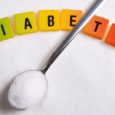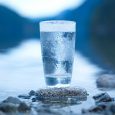How Low Energy Could Be The Result of a Vitamin or Mineral Deficiency
If you’re experiencing fatigue, it might not be that the stress of everyday life and hectic lifestyle are the only culprits. The cause of tiredness and lifelessness can often be found in vitamin deficiency, and if left unchecked, that deficiency can have a long-term effect on your overall health.
Feeling overtired can be your body’s way of telling you that something is lacking in your diet, and in order to avoid serious complications with your health, you should determine if maybe fatigue is just a symptom of vitamin deficiency, rather than a result of your lifestyle.
Vitamins and Energy
Vitamin deficiency is incredibly common, and studies indicate that well over 50% of adults suffer from lack of vitamins, which often results in afeeling of weakness and lethargy. If you’re lacking some of the energy-boosting vitamins in your diet, you’ll notice you’re having difficulties keeping up with your everyday activities, and you will feel less energetic and enthusiastic.
Of course, fatigue could be a symptom of different health problems, such as chronic infection, inflammation, flu or even more serious diseases like cancer, chronic renal failure, and diabetes, to name a few.
Considering how frequent vitamin deficiency is, it’s definitely worth ruling it out before attributing your lack of energy to the stress of everyday life or worrying about a potentially serious disease as a cause. With some adjustments your diet, you can significantly improve your energy, and get rid of fatigue once and for all.
In case you’re wondering which vitamins are people most commonly deficient in, here they are:
Vitamin D
Unique among vitamins, Vitamin D is created in your body when it’s exposed to sunlight. When it comes to natural sources, they are rather scarce, and even though it can be found in traces in some types of fish, like tuna or salmon, most people include it in their diet through fortified food or supplements.
In addition to fatigue, people who lack vitamin D in their nutrition often experience other symptoms, like muscle and joint pain, as well as depression and aching bones. Lack of energy often leads to depression and apathy, and prolonged deficiency of vitamin D leads not only to fatigue, but it can also lead to a range of different illnesses, from multiple sclerosis and diabetes to cancer and autoimmune disorders. To bring back spring in your step, spend more time outdoors and stock up on vitamin D3 supplements.
Vitamin B12
This vitamin is essential for producing red blood cells and keeping your immune system in check, and its main sources in your diet are meat and dairy products. However, if you’re on a vegan or a vegetarian diet, you might find yourself struggling to include vitamin B12 in your diet without supplements.
In the early stages, vitamin B12 deficiency is most similar to anemia, so you’ll start to tire more easily, and won’t find the energy to be active as you were before. After some time, the moreserious deficiency will present other symptoms, like tinnitus, pale yellow tinge to your skin tone and you’ll feel short of breath. As the symptoms progress, faintness, headaches, palpitations and tinnitus will occur, and even early onset of dementia. It’s extremely important to recognize the symptoms early, and start with the treatments, in order to prevent deficiency from escalating and leaving permanent damage on your health.
The easiest path your old energetic self is to eat a healthy amount of meats, cheese, and yogurt or add a B12 supplement to your diet.
Iron
One of the most common vitamins that people lack in their nutrition is iron. Iron deficiency, or otherwise known as anemia, means that there aren’t enough red blood cells in your body. The first symptom people with anemia experience is feeling of extreme tiredness, and if left untreated iron deficiency can lead to cardiovascular problems.
Fortunately, it’s easy to include iron-rich foods in your diet that will boost your energy and get you back on your feet. Red meat, green leafy veggies, and dried fruits are guaranteed to improve iron levels in your body. And, if you want to make sure iron will be absorbed as efficiently as possible, consume vitamin C along with your iron-rich meals. Whether it’s orange juice, lemonade or supplements, it will significantly improve iron absorption and keep you energetic and lively.
Vitamin Deficiency Tips and Treatments
















